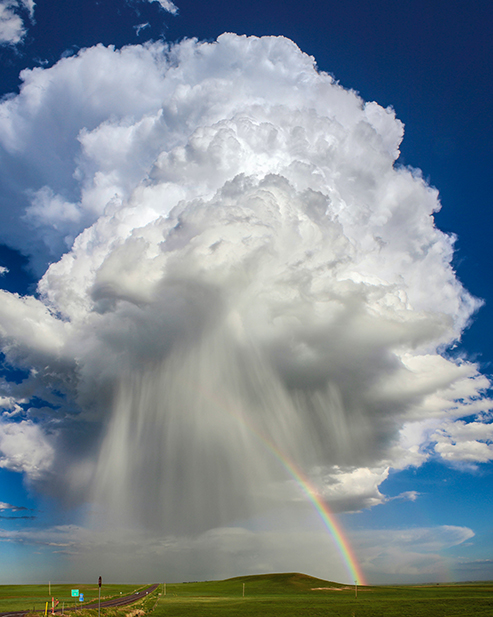The Impact of Technology on Climate Change

How does technology impact climate change? We’re going to explore both the positive and the negative influences technology has on climate change. To understand and see the issue of climate change from a lucid perspective, we must be aware of both sides.
Climate change can destructively change the course of humanity. However, the planet’s climate has naturally been shifting and changing for millions of years. However, the fact that large conglomerates keep depleting natural resources and producing toxic pollutants and the fact that we also live a consumer lifestyle might potentially be warming the planet faster than its natural course.
Positive Contributions & Impact
A note before we dive into this topic. If you want help with writing on vital topics like climate change and technology, you can visit Studyfy and take advantage of its exceptional pro essay writing service right now. Hire an expert writer, let them write for you, and submit a brilliant paper fit for a top mark. Studyfy’s writers can write on any topic, however complex it might be.
Carbon Capture and Storage
Moving along to our first point, we’ll begin by looking at the positive contributions technology provides to our planet. Let’s start with carbon capture and storage technology (CSS). CSS tech allows us to capture carbon dioxide emissions from industrial facilities and power plants.
Reducing carbon emissions can help with global warming.
Where do the emissions go? CSS tech places the capture emissions underground. It stores them there. CSS is a cutting-edge technology that should be more widely implemented for obvious reasons. What’s more, is that the captured carbon can be used for other purposes. CSS is still in its primitive stages, but it already holds a lot of promise.
Authorities and leading figures should obligate all power plants and factories to operate with CSS tech or be penalized. This could help standardize the tech, and it helps our planet when looking at the bigger picture.
CSS tech comes in a few different models:
- Pre-combustion Capture
- Oxy-fuel Combustion
- Post-combustion Capture
Each type operates differently. And even though CSS is still a young technology and poses its pros and cons, it is without a doubt a substantial-tech that needs to be further developed for the sake of our climate and, ultimately, for our planet.
Renews Energy
Another positive contribution tech has to our climate and planet is by empowering renewable energy sources like solar grids, wind turbines, and hydropower tech. Tech has helped make these more cost-effective and much more efficient. How have renewable energy machines improved?
Let’s take solar panel tech. It has been improved by making it possible to generate and produce electricity through the use of solar power and energy. Tech has also made it possible to erect wind turbines offshore and in our oceans. The winds in the marine wild are much more consistent and much stronger. It makes sense to place wind turbines around these areas.
Improves Energy Efficiency
Technology has improved energy efficiency and reduced energy waste and unnecessary consumption. It has done so through the application and invention of energy-efficient technology, which can reduce waste and can even monitor energy consumption (think smart home tech).
Smart lighting, smart heading, and smart thermostats help homes use up energy without wasting it. Businesses also offer data analytic tools that help homeowners and the masses track and reduce their energy use. Without the power of tech, this would have still been a pipe dream.
Every home that uses smart home tech can make a substantial difference in the long run. The micro is the macro, after all.
Transition To Sustainable Agriculture
Technology has helped farmers and companies transition to sustainable agriculture by improving their equipment, tools, and outdated practices. For example, let’s consider precision agriculture. Precision agriculture employs tech to optimize crop yields while reducing waste. Not only that, it employs the use of data analytics.

Negative Contributions & Impact
There are always two sides to everything. While tech has helped us improve our practices, devices, and so on, it has a downside. For everything that is produced, there is always a catch. Let’s explore the negative contributions technology produces.
E-Waste & Lithium-Dependency
The manufacturing of technological devices means more e-waste. E-waste is the end of an electronic device’s life, where it essentially becomes trash. Every tech device will eventually become e-waste, and most e-waste is sent to developing countries to be disposed of. This is not at all a sustainable practice, nor does it have a good impact on our climate.
E-waste contributes to increased carbon emissions, and it contributes to water and air pollution. And e-waste like lithium batteries can release many toxic chemicals. This becomes even more problematic since we have not found an efficient way of recycling and disposing of e-waste.
Moreover, many companies like Apple take advantage of shortening the life span of their products so that consumers will need to spend on a new product after some time. This, in turn, keeps generating profit for these tech companies. If we don’t take care of our e-waste problem soon, it will just add to our pollution problem, which is already dire.
Emissions From Production
Tech production also produces greenhouse gas emissions. Why is this? Because, like most manufacturing and production processes, raw materials need to be extracted and processed. This is mainly what produces emissions. The transportation of tech devices also produces emissions.
Final Thoughts
While technology has introduced us to hi-tech and cutting-edge innovations that are presently helping us reduce waste, use fewer resources, and help us capture carbon emissions, the impact of e-waste and technological production regresses our progress.
However, the key players in the production of pollution and emissions are not people. All you need to do is research, and you’ll come to realize that it is the large conglomerates that produce the most waste and impact the climate the most since they are operating at impossibly large scales and consistent and endless rates.
As individuals we can reduce waste and live a more mindful life; however, if nothing is done on the larger playing field, then we will continue to contribute negatively to climate change and the destruction of our planet.




